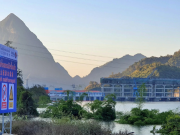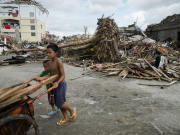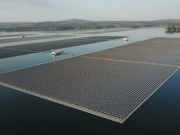Philippines , Apr 30, 2025
As remote work becomes a permanent part of the global workforce, the Philippines is betting big on attracting digital nomads. With postcard-perfect beaches, low living costs, and English proficiency, the country is marketing itself as the next remote worker haven in Asia. But behind the picturesque setting lie real challenges that may make or break this vision.
In early 2025, the Philippine government rolled out a Digital Nomad Visa, offering long-term stay options, tax exemptions for foreign-sourced income, and simplified registration for remote workers. The move is part of the country’s broader strategy to diversify tourism and tap into the growing global pool of location-independent professionals.
“We want the Philippines to be the Bali of this decade,” said Tourism Undersecretary Carla Ramos. “From Cebu to Palawan, our islands offer natural beauty, vibrant communities, and now — more legal clarity for remote workers.”
However, not all stakeholders are optimistic.
In places like Siargao, Palawan, and Cebu City, concerns are rising over infrastructure bottlenecks, especially in internet reliability and housing supply. While some urban centers offer decent coworking hubs and 5G access, rural paradises — the very spots that attract nomads — are still plagued with spotty service.
“Wi-Fi can drop anytime. It’s okay for tourists, but not for someone attending Zoom meetings daily,” said Marian De la Cruz, a property manager in El Nido. The sudden influx of long-term foreign tenants is also putting pressure on rental prices, pushing locals out of the market in popular areas.
Despite the hurdles, some entrepreneurs are already betting on the boom. A surge of coworking cafés, digital communities, and nomad-focused retreats have popped up in recent months. In Cebu IT Park, real estate developers are rebranding older buildings into “smart flats” targeting remote professionals.
To address gaps, the government is working with the private sector to expand fiber networks, upgrade airports, and create digital nomad help desks at major entry points. The goal is to balance tourism growth with community sustainability.
Yet the big question remains — will digital nomads actually come and stay?
Many say it will depend on how quickly the Philippines can close its infrastructure gaps and build trust in its systems. For now, the country has made a compelling pitch — but turning that promise into reality will take more than beach views and tax breaks.















